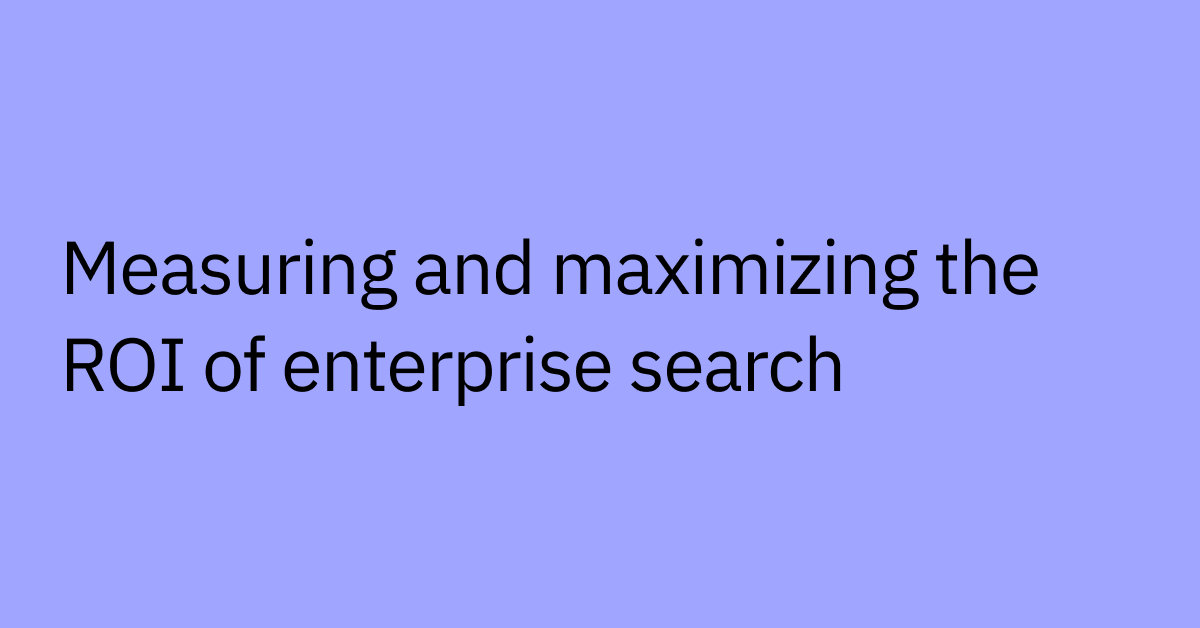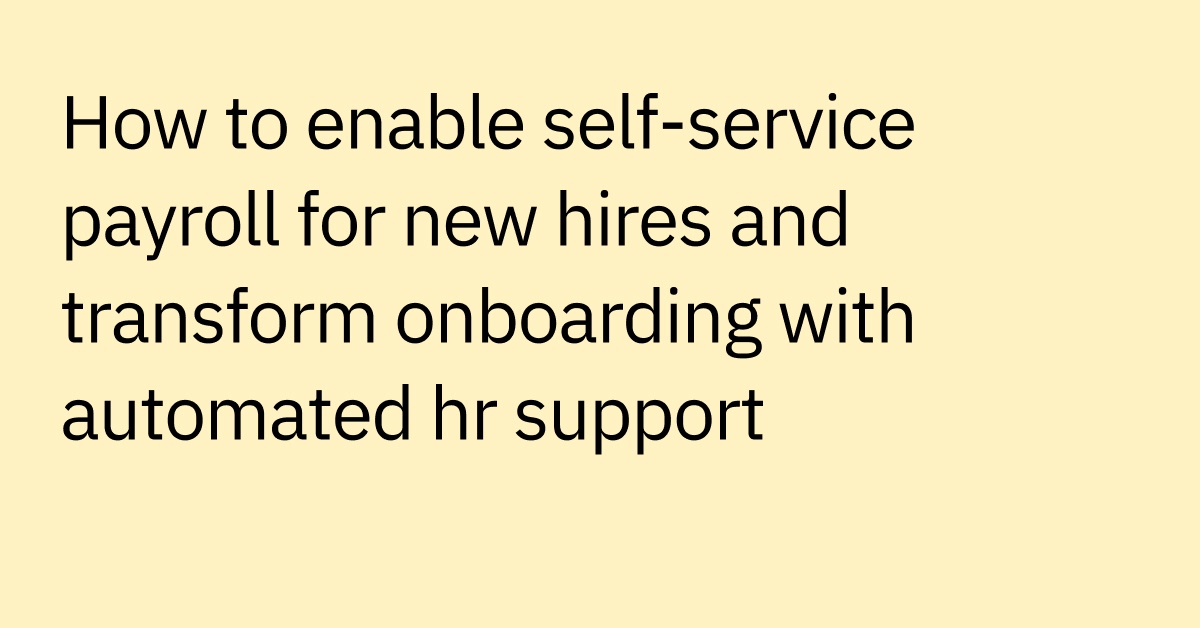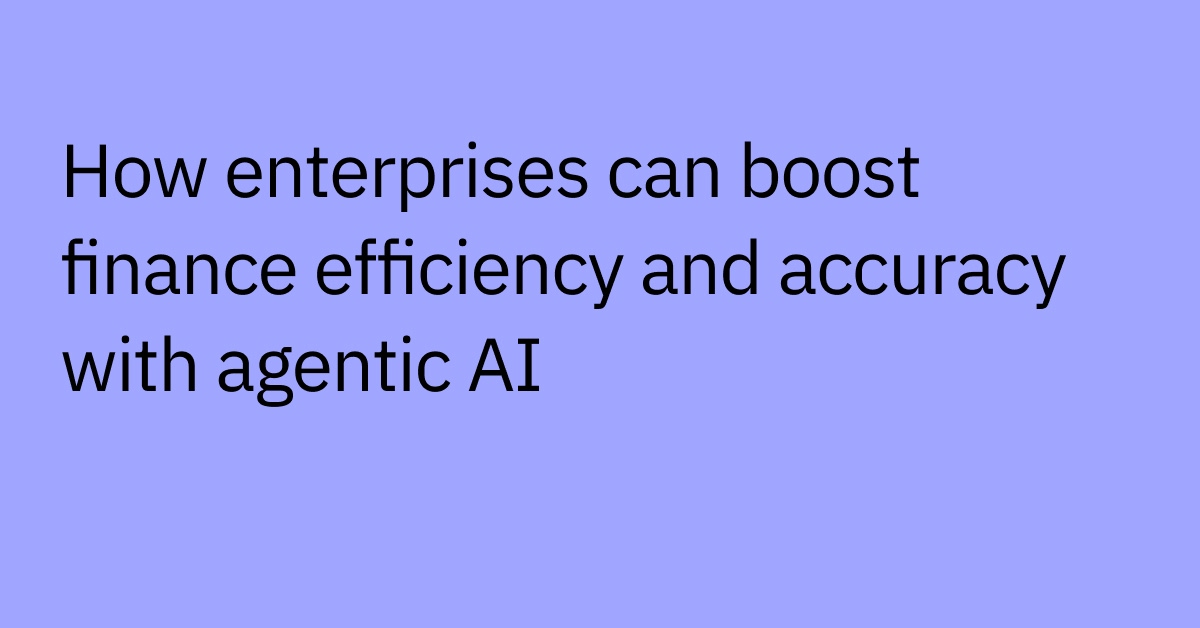Table of contents
Highlights
- AI agent development services focus on building intelligent, autonomous systems that can perceive context, reason through decisions, and take multi-step actions with little to no human intervention.
- Not all AI automation is equal. True agentic AI goes beyond rule-based scripts to adapt in real time and handle complex, dynamic workflows.
- Hiring a development partner makes sense when you lack in-house expertise, need to move fast, require deep enterprise integrations, or have struggled with past automation projects.
- Enterprise-ready partners should offer proven experience with agentic AI, secure system integrations, compliance, rapid deployment, and ongoing optimization.
- You have multiple paths forward. From full-service development companies to no-code AI builders to developer frameworks to hybrid solutions like Moveworks that combine speed, customization, and scalability.
Imagine having an AI tool that streamlines your work and boosts your team’s efficiency. In fact, a recent global survey of 1,500 IT leaders found that 96% of IT leaders plan to expand their use of AI agents in the next 12 months. But while interest is skyrocketing, the path to building AI agents with advanced decision-making and real impact isn’t always straightforward.
You’ve probably been pitched “AI agent development services” — offerings that promise to help you design and deploy intelligent systems. Some sound promising. Others seem suspiciously like rebranded chatbots.
And in all that noise, it’s hard to know which partners can truly deliver — and which might waste time and budget without scaling beyond a demo.
You’re not alone in wondering:
- What should a real AI agent development service provide?
- How do I tell the difference between an enterprise-ready agent and a glorified process automation script?
- Do I even need a development partner, or is there an alternative to streamline my automation workflows?
This guide will cut through the noise so you can avoid costly detours and focus on AI-powered solutions that help deliver genuine, lasting business impact.
What are AI agent development services?
Put simply, AI agent development services help you design, build, and launch intelligent systems that perceive context, make data-driven decisions, and act autonomously in real time. These services typically include:
- Architectural planning: Mapping how your agent will connect datasets, tools, and existing systems.
- Integration with large language models (LLMs) and AI: Gives your agent reasoning and natural language processing (NLP) skills by combining LLMs with orchestration frameworks.
- Orchestration layer design: Ensures that different AI models, APIs, and services work in sync for seamless integration.
- Workflow mapping: Translating business processes into actionable steps for the agent.
- Custom development: Tailoring the agent to your unique needs and infrastructure.
- Rigorous testing and validation: Verifying performance, security, and compliance before it touches live data.
- Deployment and optimization: Rolling it out smoothly and setting it up for scalability with ongoing monitoring and fine-tuning.
Unlike general artificial intelligence development (which might focus on analytics or custom models) or simple automation (like rule-based scripts for repetitive tasks), AI agent development creates systems that reason, adapt, and act independently, improving operational efficiency at scale.
What’s the difference between AI automation development and AI agent development?
Most people lump AI automation and AI agent development into the same bucket, but they’re not the same thing. The difference really comes down to scope, intelligence, and adaptability.
General AI development can involve almost anything with AI, from training machine learning models and building analytics tools to embedding AI capabilities into CRM or ERP systems.
AI automation development is a bit narrower: it’s about creating algorithms for rule-based, step-by-step workflows. Yet building automations alone can be time consuming and result in rigid workflows that can struggle to match the dynamic nature, reasoning, fast deployments, or scalability of AI agents.
AI agent development is a different game entirely. Here, the focus is on creating autonomous systems that can:
- Perceive context: Interpret requests, data, and system states in real time.
- Reason through options: Evaluate multiple paths to reach the best outcome.
- Take action without human intervention: Able to execute multi-step tasks across systems with little to no human intervention.
AI agents usually combine a decision-making model (like an AI language model) with a process that helps them plan and carry out tasks step by step. They keep track of information with memory, connect to other tools and systems to take action, and include safeguards so they are able to stay reliable and safe. Instead of just triggering actions, AI agents decide what needs to happen and how to get it done, even if conditions shift mid-process.
When should you hire a development service?
Bringing in an external development partner isn’t always necessary, but it can accelerate the development process when:
- You don’t have in-house AI expertise: If your team doesn’t have data scientists, machine learning engineers, or product specialists skilled in LLMs, orchestration, or agentic AI systems, a partner can fill the gap. With AI talent in high demand, hiring internally can be costly and slow.
- You’re under pressure to move fast: Maybe you need to prove ROI to the board, secure your budget for next year, or leap ahead of a competitor. If a 6–12 month internal build cycle isn’t an option, outsourcing can shave months off your timeline.
- You’ve had disappointing automation or chatbot projects before: If earlier investments in basic RPA tools, AI chatbots, or virtual assistants fell flat due to poor scalability, clunky language understanding, or fragile configurations, a specialized service can deliver where others failed.
- You need deep, enterprise-grade integration: Connecting an AI agent to ITSM platforms, identity systems, HR tools, or other core infrastructure requires technical skill and enterprise security expertise. That’s not something every team can pull off internally.
- Your team’s bandwidth (or budget) is already stretched: Building and maintaining an AI agent infrastructure takes resources. If your team is stretched thin, outsourcing lets you focus on strategic priorities while a partner handles development.
While building in-house is an option, the right partner can help you accelerate deployment, strengthen integrations, and help you realize ROI faster.
Key capabilities to look for in an enterprise-ready partner
Not every AI vendor can deliver enterprise-grade AI agents that can truly think, adapt, and operate within complex environments. Use this checklist to choose the right custom AI agent development partner:
Experience with agentic AI — not just simple automation
A reliable partner will have hands-on expertise with goal-oriented agents that use LLMs, orchestration frameworks, and multi-step task handling. Without this foundation, you risk ending up with a glorified chatbot that requires constant manual intervention.
Enterprise system integration capabilities
Your AI agent needs to connect seamlessly with core systems like ServiceNow, Jira, Workday, and Azure AD. Partners who’ve already navigated enterprise authentication, workflows, and triggers can build integrations that work reliably at scale, avoiding the pitfall of agents that can’t act on critical requests.
Strong security and compliance practices
Look for vendors with secure data encryption and storage, role-based access control, transparent documentation, and compliance with global standards like GDPR compliance and certifications. Weak security practices can expose your systems to breaches, undermining trust and compliance.
Fast, scalable deployment track record
Choose a partner with proven frameworks, playbooks, and case studies showing real timelines. They should enable quick go-live without endless discovery phases. If they lack this, you could spend months with no results, draining budgets and momentum.
Ongoing support and optimization
AI agents need tuning and monitoring post-launch to stay effective. Confirm whether the vendor provides ongoing support to refine performance. Without it, you risk getting stuck with a static solution that quickly becomes outdated as your needs evolve.
Centralized, user-friendly interface for employees
The front end matters as much as the back end. A well-designed interface makes interacting with the AI intuitive, boosting adoption and freeing you to focus on innovation. A clunky front end can lead to low usage, forcing you to spend time on employee training instead.
Questions to ask your vendor before you commit
Before signing a contract, ask these questions to uncover how a vendor works, what they can deliver, and whether they’re set up to support you long-term:
- What orchestration framework do you use, and why?
- How do you ensure data privacy, access control, and compliance?
- Can your AI agents take multi-step actions, or do they just respond to prompts?
- How will you handle integration with our existing tools and systems?
- What’s your process for testing and validating an AI agent before launch?
- Do you provide post-launch fine-tuning and performance optimization?
- What visibility will we have into the AI agent’s decisions and actions?
- How do you handle security updates and patches?
- What advanced capabilities can your AI agents support (e.g., segmentation, forecasting, predictive workflows), and how are those delivered?
- What are some examples of enterprise-scale deployments you’ve done?
- How have your solutions delivered measurable ROI for other organizations?
Differences between AI agent development companies, AI agent builders, and AI agent frameworks
You might think that you have to pick between building an AI agent entirely from scratch or handing the whole thing off to an outside vendor. But you’ve got more options than that:
AI agent development company
What it is: Think of this as your “done-for-you” option. These businesses specialize in designing, building, and deploying different types of AI agents for clients, often from the ground up. A good development company will guide you through:
- Consulting
- Custom development
- Integration with your existing systems
- Deployment
- Ongoing support
What it’s best for: They might have proprietary tools or use third-party platforms, but their real value lies in delivering something tailored to your business operations.
Pro: End-to-end delivery.
Con: Higher cost and less direct control.
AI agent builder
What it is: This software lets you create, configure, and launch AI agents yourself, often with low-code or no-code interfaces. You decide what your agent can do, how it connects to your data, and the workflows that it follows.
What it’s best for: Builders are perfect if you want hands-on control without getting deep into the programming weeds. They’re often used by developers and business teams who want to customize AI agents without hiring a full engineering team.
Pro: Speed and flexibility.
Con: Limited depth for highly complex use cases.
AI agent framework
What it is: This is the “developer’s playground.” Frameworks are sets of libraries, APIs, and architectural guidelines designed for building AI agents programmatically. They give you building blocks like reasoning engines, plugin architectures, and orchestration tools, which are great for highly customized and scalable solutions.
What it’s best for: These are usually best suited for engineering teams that are comfortable with writing code and building complex systems from the ground up.
Pro: Maximum customization.
Con: Longer build times and higher resource needs.
The hybrid approach
Some platforms, like Moveworks, give you the best of all worlds:
- You can deploy prebuilt, enterprise-grade agents quickly and at scale.
- You have the flexibility to customize, integrate, and extend capabilities using an intuitive, low-code builder.
This means that you’re not locked into a one-size-fits-all solution and don’t have to sacrifice sophistication for speed.
How to choose the right AI agent development partner
Finding the right partner for AI agent or agentic AI development isn’t just picking the biggest name or the flashiest demo. Before you sign anything, take a step back and work through a few key questions:
1. What are the primary objectives for deploying AI agents within my organization?
Evaluate your key focus. Are you looking to:
- Automate routine tasks quickly?
- Improve customer engagement through complex content generation?
- Enhance conversational interactions?
- Streamline workflows with multiple agents?
Your business requirements will determine not just the right partner, but also the right approach.
2. How critical is customization and flexibility in AI model capabilities?
If your business relies on highly tailored workflows or unique data insights, you’ll want a partner who offers deep customization, not just prebuilt templates. That often means working with a team that can adapt AI functions for specialized tasks.
3. What is the existing technical expertise within my team, and how much development effort can we realistically invest?
- Low-code/no-code: If your team doesn’t have robust programming resources, a no-code or low-code AI agent builder might be best.
- Complex development: But if you’ve got engineers who are comfortable building from scratch, you could explore more complex frameworks or multi-agent setups.
4. How important is integration with current systems and infrastructure?
The slickest AI agent solution in the world won’t help if it can’t talk to your CRM, data warehouse, or ticketing platform.
Determine how easily a solution plugs into your existing systems and whether it can scale as your stack evolves.
5. What’s the anticipated scale and complexity of your AI solution?
- Simple automation: Rapid-deployment tools might work if you need a single agent to handle repetitive processes.
- Comprehensive solution: If you envision multiple agents making coordinated decisions, you’ll want a partner experienced with orchestration frameworks and advanced architecture.
The right partner will help you balance quick wins with long-term scalability, giving you the confidence to start small and grow into more sophisticated automation over time. Many enterprises are finding that with the right team, they can get fast results without the pain of drawn-out development cycles.
See how Moveworks accelerates AI agent delivery
Building effective AI agents can feel complicated and even overwhelming, from defining the goals to navigating technical complexity and integration challenges. While the payoff is worth it, success depends on having the proper foundation, the right partner, and a clear path from prototype to production. This is where the right tools and expertise can turn a daunting build into a fast, measurable win.
Moveworks is a secure, adaptive, and powerful platform that enables you to find answers and automate tasks across your enterprise.
With the Agentic Automation Engine and Agent Studio, you can build, deploy, and manage custom AI agents that:
- Integrate with your business systems.
- Tap into a marketplace of prebuilt agents and plugins.
- Streamline automation at scale.
Acting as an intelligent AI layer across your tech stack, Moveworks delivers quick wins while laying the foundation for long-term agility.
See how quickly you can go from concept to production AI agents with Moveworks: Explore the AI Agent Builder.
Frequently Asked Questions
AI agent development services help enterprises design, build, and deploy autonomous agents that can understand context, make decisions, and take action across systems. These services go beyond simple automation or chatbots by supporting orchestration, large language model (LLM) integration, workflow execution, and enterprise security.
Simple automation or chatbot development typically focuses on static scripts or rule-based interactions. AI agent development involves building systems that can perceive user needs, reason through next steps, and act independently — often by integrating deeply with IT, HR, or other enterprise tools.
Not always. If your organization lacks internal expertise or has aggressive timelines or complex integration needs, a development partner may be the best route. However, hybrid platforms like Moveworks can accelerate time to value with prebuilt AI assistants with enterprise-grade customization.
Choose a partner with experience in agentic AI, proven integration capabilities, strong security practices, fast deployment timelines, and ongoing support. Avoid vendors that only offer simple automation or chatbot-style functionality without orchestration or autonomy.
Timelines vary based on complexity, but custom development can take 6–12 months or more. Managed platforms like Moveworks drastically reduce time-to-value by offering enterprise-ready agents that can be configured quickly.
Building gives you full control but requires time, talent, and resources. Buying a prebuilt agent saves time but may lack flexibility.
A hybrid approach — using a platform like Moveworks — offers fast deployment with enterprise-grade sophistication without sacrificing adaptability.



